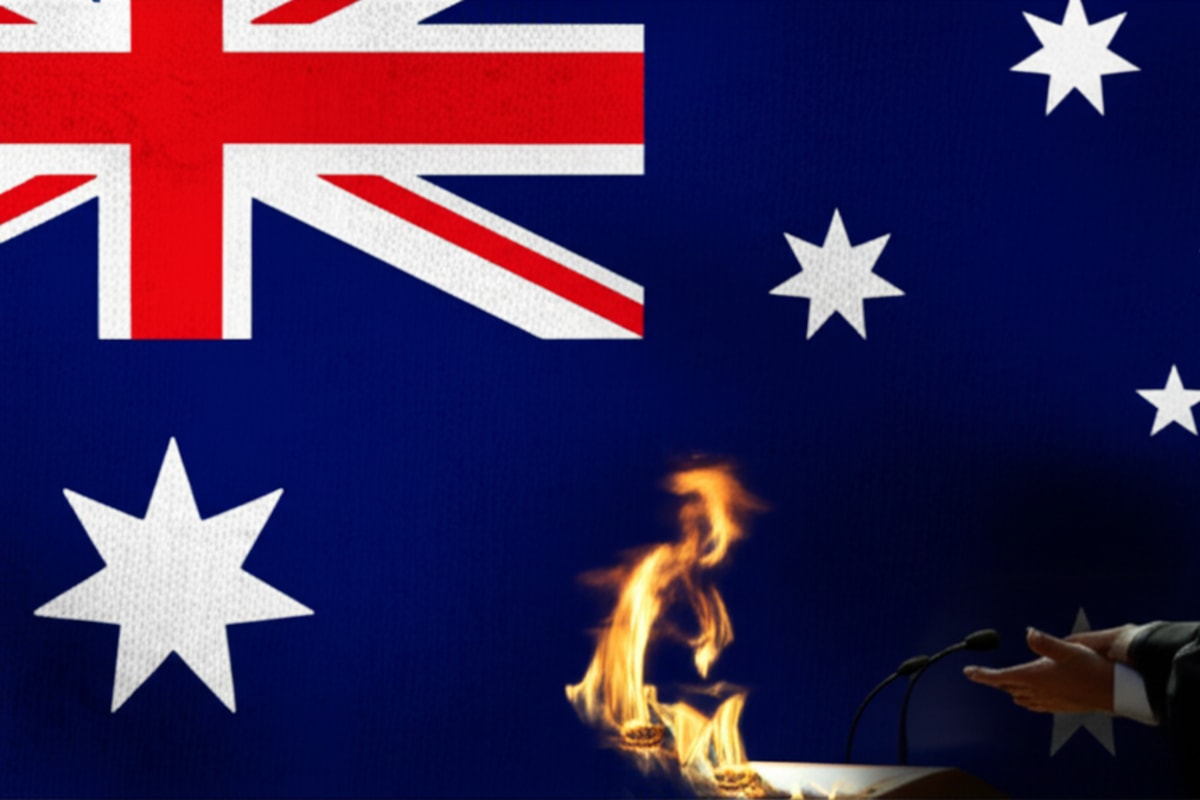Australia's Flag Debate: Price vs. Albanese

Australia's political landscape is currently embroiled in a heated debate surrounding national identity and symbolism, specifically focusing on the Australian flag and its burning Senator Jacinta Nampijinpa Price, a prominent figure in Australian politics, is leading the charge, advocating for the criminalization of flag burning Her argument centers around the idea that those who express pride in the Australian flag and the nation it represents are unfairly labeled as racist
Background
Price's stance resonates with a segment of the Australian population who view the flag as a powerful symbol of national unity and heritage Price's Argument and its Critics Price further criticizes Prime Minister Anthony Albanese for standing in front of multiple flags, suggesting this act divides the nation and undermines the significance of the Australian flag However, Price's call to action is not without its critics Many argue that criminalizing flag burning infringes upon fundamental rights to freedom of expression, a cornerstone of democratic societies
The debate highlights a broader discussion about the evolving understanding of Australian identity in a multicultural society Historical Connotations and Indigenous Perspectives While the flag serves as a symbol of national pride for many, it also carries complex historical connotations, including the legacy of colonialism and its impact on Indigenous Australians The debate thus touches upon deeply emotional and historical issues, making it particularly sensitive for Indigenous communities The inclusion of multiple flags in official settings, as seen with Prime Minister Albanese, often aims to showcase Australia's multicultural fabric and acknowledges the significant contributions of various ethnic groups Southeast Asian Context For Southeast Asian readers, this context is particularly relevant, given the significant presence of Southeast Asian communities in Australia Seeing the Australian flag alongside other flags can be interpreted as a gesture of inclusivity and a recognition of the nation's diverse population, reflecting the reality of a multi-cultural Australia This debate has far-reaching implications, extending beyond the act of flag burning itself It exposes underlying tensions within Australian society regarding national identity, historical reconciliation, and the balance between freedom of expression and national unity Broader Implications and Nuances The debate also touches upon the importance of nuanced discussions about national symbols and their evolving interpretations within a dynamic and diverse society For Southeast Asian readers, understanding the nuances of this debate requires recognizing the broader context of multiculturalism in Australia and the ongoing process of reconciliation with Indigenous communities The discussion around flag burning is not solely about the act itself, but rather a reflection of deeper societal conversations about belonging, identity, and the representation of diverse communities within the national narrative Perspectives and Dialogue The perspective of different communities, including the indigenous population and immigrant communities from Southeast Asia and elsewhere, adds valuable layers of meaning and context to this highly charged debate The ongoing discussion requires careful consideration of various perspectives and a commitment to fostering respectful dialogue and understanding It is crucial to avoid generalizations and recognize the complexity of the issues at stake, particularly the historical and contemporary experiences of different communities within the Australian nation Seeking Common Ground The debate raises critical questions about how Australia seeks to reconcile its past and present while building a more inclusive future for all its citizens Ultimately, the resolution of this debate will require a collaborative effort to find common ground and ensure that the discourse respects freedom of expression while also safeguarding the national unity and cultural heritage of Australia This requires acknowledging the diverse viewpoints and working towards a shared understanding of national identity that reflects the multicultural reality of modern Australia Key Insights: The debate highlights tensions between freedom of expression and national unity
Flag burning criminalization sparks discussion on Australian national identity in a multicultural context Albanese's use of multiple flags underscores Australia's multiculturalism, but also fuels the controversy
Contextual Analysis: The debate reflects broader global discussions on national identity and freedom of expression, particularly relevant in multicultural societies The context is significant for Southeast Asian nations grappling with similar issues of national unity and cultural diversity
